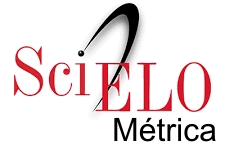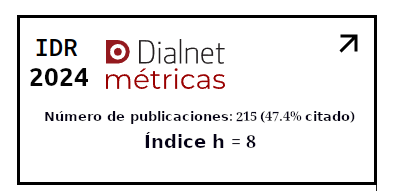Agentes productores y socializadores del campo de los estudios sobre desarrollo comunitario en Latinoamérica
Palabras clave:
Teoría de los campos, desarrollo comunitario, campo científico, capital científico, LatinoaméricaResumen
El campo científico de los estudios sociales acerca del desarrollo comunitario en Latinoamérica se encuentra en un proceso constante de cambios y contradicciones. Se planteó como objetivo del estudio identificar los agentes que presentan mayor capital de producción científica y mayor capital de autoridad dentro del campo científico de los estudios sociales acerca del desarrollo comunitario en Latinoamérica. El estudio clasificó como descriptivo y longitudinal - retrospectivo. Para la obtención de resultados se emplearon métodos en los niveles teórico y empírico, fundamentalmente el método bibliométrico. Se identificaron los principales agentes con mayor capital de autoridad y producción científica. Se establecieron las relaciones de colaboración entre los sujetos que estructuran el campo y se visualizó el colegio invisible con mayor impacto dentro de los estudios comunitarios en Latinoamérica. Como principales conclusiones se obtiene que dentro de los agentes con mayor capital de producción científica destacan miembros foráneos de la región. El campo está poco consolidado, aspecto visible desde la colaboración científica. Solo tres autores contaron con un capital de autoridad reconocido. Se identificó un colegio invisible relativamente fuerte cuyo dominio del colegio fue eminentemente cubano y las producciones intelectuales fueron socializadas en la revista Pastos y Forrajes.
Referencias
Aguado, L. F., Osorio, A. M., Arbona, A., y Pena, J. C. (2017). Efectos de la realización de un megaevento deportivo sobre una economía local: El caso de los Juegos Mundiales 2013 Cali. Journal of Economics, Finance and Administrative Science, 22(43), 131-153.
Bekerman, M., y Dulcich, F. (2017). Análisis comparativo de la Zona Franca de Manaos y el área aduanera especial de Tierra del Fuego. Economia e Sociedade, 26(3), 751-791.
Bourdieu, P. (1976). Le champ scientifique. Actes de la recherche en sciences sociales, 2(2), 88-104.
COES. (2019). Investigador asociado Patricio Aroca. Recuperado el 5 de abril, 2019, desde Http://coes.cl/integrantes/patricio-aroca/
Corona, M. A. (2018). El arduo proceso de reinserción laboral de los retornados en la periferia globalizada. Economía, sociedad y territorio, 18(57), 455-486.
Crane, D. (1972). Invisible Colleges. Chicago: The University of Chicago Press.
Cueto, R. M., Espinosa, A., Guillen, H., y Seminario, M. (2016). Sentido de Comunidad Como Fuente de Bienestar en Poblaciones Socialmente Vulnerables de Lima, Perú. Psykhe, 25(1), 1-18.
de los Rios, I., Diaz, J. M., y Cadena, J. (2011). La iniciativa LEADER como modelo de desarrollo rural: Aplicación a algunos territorios de México. [The initiative LEADER as a model for rural development: Implementation to some territories of México]. Agrociencia, 45(5), 609-624.
Escavador. (2019). Mario Vasconcellos Sobrinho. Recuperado el 17 de febrero, 2019, desde https://www.escavador.com/sobre/567041/mario-vasconcellos-sobrinho
Esqueda, R. (2018). Disparidades en el desarrollo regional en Tamaulipas, México. Revista de Economía Institucional, 20(38), 235-262.
Facultad Latinoamericana de Ciencias Sociales-Cuba. (2019). Cristóbal Kay especialista latinoamericano en desarrollo rural. Recuperado el 3 de abril, 2019, desde http://www.flacso.edu.cu/portal/contenido/noticias/cristobal-kay
Fereira, E. (2019). La ciencia y la tecnología en América Latina. Recuperado el 3 de marzo, 2020, desde https://youtu.be/8EGLVBsSH8c
Fernández, J., y Puente, A. (2009). La noción de campo en Kurt Lewin y Pierre Bourdieu: un análisis comparativo. Revista Española de Investigaciones Sociológicas, 127(2009), 33-53.
Fuchs, S. (1993). A sociological theory of scientific change. Social Forces, 71(4), 933-953.
González, E. (2016). Sociología agraria: orígenes, evolución y problemas actuales Sociología agraria. Procesos agrarios en Cuba y América Latina. La Habana: Editorial Universitaria Félix Varela.
Kay, C. Estudios rurales en América Latina en el periodo de globalización neoliberal: ¿una nueva ruralidad? Revista mexicana de sociología. 2009 12;71(4):607-645.
Lazzaro, S. B. (2017). Reforma agraria y práctica política en el contexto del desarrollo y la modernización, Argentina, 1955-1975. América Latina en la historia económica, 24(3), 193-223.
Lewin, K. (1978). La teoría del campo en la ciencia social. Buenos Aires: Paidós.
Linkedin. (2019). José María Díaz-Puente. Recuperado el 20 de febrero, 2019, desde https://es.linkedin.com/in/josemariadiazpuente
Moody, J. (2004). The Structure of a Social Science Collaboration Network: Disciplinary Cohesion from 1963 to 1999. American Sociological Review, 69(2004), 213-238.
Navarro, F., Cejudo, E., y Maroto, J. C. (2014). Reflexiones en torno a la participación en el desarrollo rural: ¿Reparto social o reforzamiento del poder? LEADER y PRODER en el sur de España. EURE (Santiago), 40(121), 203-224. doi: 10.4067/s0250-71612014000300010
Paz, L. E., y Caramés, M. (2020). Concepciones para el análisis de campos científicos. TELOS: Revista de Estudios Interdisciplinarios en Ciencias Sociales, 22(1), 106-124.
Price, D. S. (1973). Hacia una ciencia de la ciencia. Barcelona: Ariel.
Riera, C. M., Paz, L. E., y Hernández, E. A. (2018). Consideraciones sobre el desarrollo comunitario. Investigación y Desarrollo, 26(1), 29-43.
Sanchezl, A. (2017). Empoderamiento, liberación y desarrollo humano. Psychosocial Intervention, 26(3), 155-163.
Santamaría, J. A., y Barraza, M. E. (2018). Craftsmanship and champeta: cultural industries and local development in the municipalities of Clemencia and María la Baja in the department of Bolívar. Cuadernos de Administración, 34(60), 63-80.
Spinak, E. (1996). Diccionario Enciclopédico de Bibliometría, Cienciometría e Informetría. Caracas: UNESCO.
Universidad Autónoma de México. (2019). Lilia Zizumbo Villarreal. Recuperado el 22 de enero, 2019, desde http://web.uaemex.mx/cietur/nucleo_academico_maestria/lilia_zizumbo_villarreal.html
Zambrano, A. X., García, M., y Bustamante, G. (2015). Soy el que cierra y el que apaga la luz: Cuando el liderazgo de dirigentes comunitarios no empodera a la comunidad. Universitas Psychologica, 14(3), 1159-1170.
Publicado
Número
Sección
Licencia
Derechos de autor 2021 ACADEMO Revista de Investigación en Ciencias Sociales y Humanidades

Esta obra está bajo una licencia internacional Creative Commons Atribución 4.0.










